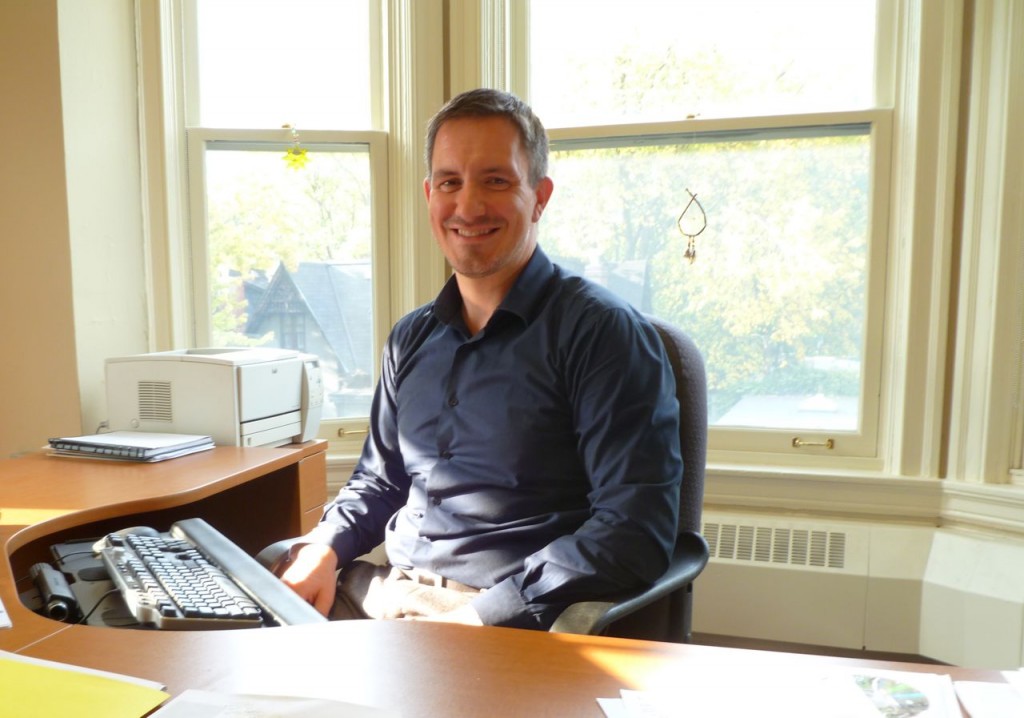David Newman, Student Life
David Newman, Assistant Director, Student Life
In 2012, David Newman joined the Office of Student Life, in part, to work on the Co-curricular Record project, which was identified as a primary need for the University of Toronto as a result of a 2011 Working Group formed through the Council on Student experience. A growing part of student life for many North American Universities, a Co-curricular Record is a parallel document to the academic transcript in which students can document their learning, experiences, and skills developed in their campus activities outside of their academic studies.
At UofT, the Co-curricular Record aims to support students by connecting co-curricular participation to competencies, validating a more holistic learning experience in complement with academics, and by creating a tool for student to articulate their individual experiences. As well, it will help students identify opportunities on campus, by creating a searchable inventory of activities. This year, an Advisory Committee and four working groups have developed a framework to define activities, potential competencies developed in each activity, how to validate student experience, and how to provide local assistance. Currently they are looking at systems to build the inventory, and validating activities that will be part of the record. Faculty can get involved in the department level, by validating individual student participation, or by submitting possible activities to their local committee, which will provide support for the initiative as it develops.
In Fall 2013, the system will be available for all degree-level students to begin recording their co-curricular activities for the Record. In the longer term, as the system launches, Student Life would like to work with local co-ordinators to ensure that validation can take place at the level closest to the activities.
What challenges do you see as most pressing for UofT students?
“The availability of time, and the pressure to achieve. They also have other commitments, like family responsibilities and work. Commuting! The Co-curricular Record can be part of that. So we’re working to ensure equitability and accessibility so students can still have time to participate.”
How have students responded to your programming?
“Generally very positively. We’ve had consultations and focus groups, across the Divisions and campuses. There have been several questions, which continues to help shape the process..”
What do you think faculty might be surprised to learn about their students?
“I wish I knew just how many students were involved in all of our groups. We know how many groups exist but in some there are hundreds of members. So I think faculty would be surprised if they knew the impact co-curricular experiences had.”
What could faculty do to support students in their courses?
“Just to be aware of resources. Students are often looking for lifelines, and frequently they will look to their professors for support when that happens. Another way is showing an interest in students’ lives and finding or creating ways to participate in student life. Some of the greatest connections that happen outside class and networking and sharing ideas have a significant impact on student success.”
